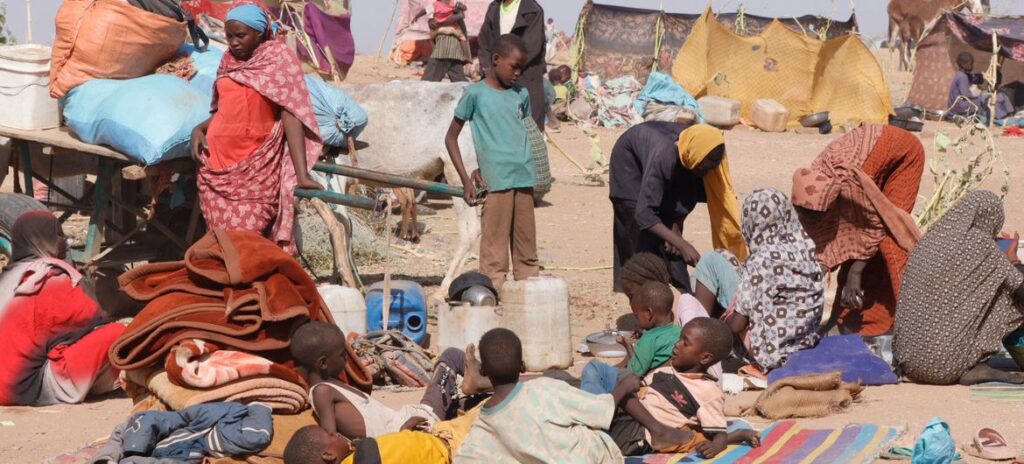The spokesman for Secretary-General António Guterres on Monday said Sudanese civilians are enduring a deepening crisis with ongoing attacks, acute hunger, and starvation, and that the situation in the country is extremely dire.
According to Stéphane Dujarric, who was briefing the media in New York, the Director of Operations and Advocacy at OCHA, Edem Wosornu, on Monday, expressed alarm over reports from the besieged city of El Fasher in North Darfur State that more than 60 people died from malnutrition in just one week.
“And most of them, as one can imagine, belong to vulnerable groups such as women and children. Ms. Wosornu is going to visit West Darfur State this week, and we expect to hear more from her upon her return,” he said. “As you are aware, famine was first detected in North Darfur State in the Zamzam displacement camp about a year ago and is expected to have expanded to other areas since.”
“Meanwhile, we are gravely concerned by ongoing violence in the Kordofan region, including reports last week [on August 7th] of attacks on some villages in North Kordofan State,” Dujarric added.
He said eighteen civilians were reportedly killed, with dozens more wounded.
“We once again underscore that civilians must never be targeted, and all parties must uphold their obligations under international humanitarian law,” the spokesman stated.
On the health front, Dujarric said the UN and its humanitarian partners continue to scale up the response to the cholera outbreak in Sudan, where nearly 100,000 cases have been recorded since July of last year.
“In Khartoum State, a new vaccination campaign began yesterday, targeting 1.1 million people, with support from our colleagues at the World Health Organization,” he said. “In North Darfur State, more than 5,300 suspected and confirmed cases, with 84 related deaths, have been reported by local partners since June 21st, most of them in Tawila locality, where 330,000 people displaced from Zamzam and El Fasher are sheltering in dire conditions.”
“Our partners on the ground are responding through cholera treatment centers, but overcrowding, poor sanitation, limited access, and the ongoing rainy season are accelerating the spread of the disease and hampering the delivery of aid,” Dujarric concluded.




